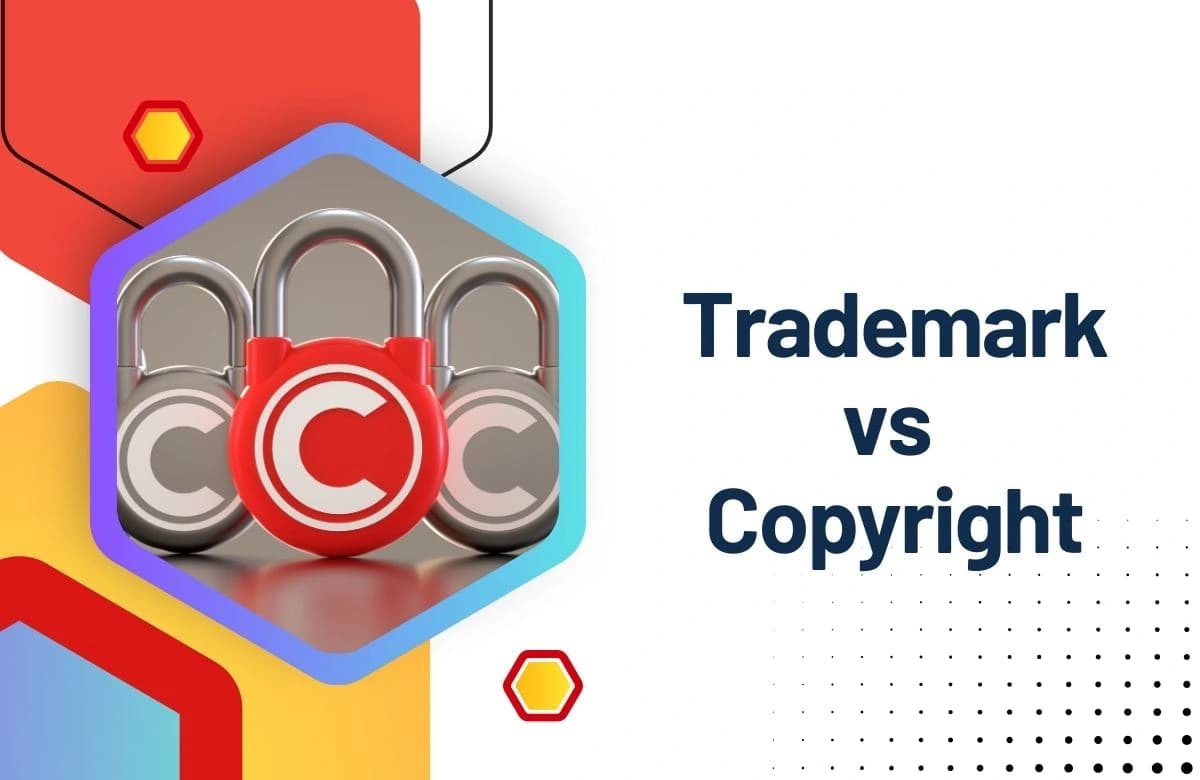
With digital media at our doorstep, branding and content creation as a business and individual pathway to success, intellectual property (IP) rights information is more important than ever before. Two of the most confusing forms of IP protection are trademarks and copyrights. While they are utilized to protect intellectual and business property, they are utilized relatively differently. Knowing trademark vs copyright can spare your time, cleanse your name off the wrong side of the law, and even destroy your brand.
With this complete guide, we shall unlock all you would like to understand about trademark vs copyright, from definitions and general differences to legal protection, time, and enforcement, among others. At the end of it, you shall know how each protector works, and whether or not is appropriate for what you require.
What is a trademark?
A trademark is a word, symbol, sign, or combination legally created to identify and distinguish the origin of goods or services. Trademarks help consumers identify the origin of a good or service from another.
Common examples of trademarks include:
- Brand names (Apple, Nike)
- Logos (McDonald’s golden arches)
- Slogans (“Just Do It”)
- Distinguishing appearance and product packaging
Trademarks must be used when creating brand awareness and consumer confidence. Trademark Registration gives the owner rights to use the mark exclusively on goods or services and protection against others to use a similar trademark that would mislead consumers in the market.
What is a Copyright?
Copyright is created to safeguard original author work that is contained in form material expression. They include literary work, art work, music work, and computer work. Although copyright shall not safeguard ideas, it will hinder ideas from being expressed. Some of the work that copyright safeguards include:
- Articles, poems, and books
- Painting, drawing, and photo”
- Television, video game, and movie
- Music and sound recording
- Computer program and digital content
Copyright is automatic the moment a work has been made and preserved in material form. Registration of works is not required to enjoy copyright protection, but public registration of works is mandatory for legal remedies in case of some protections.
Trademark vs Copyright: Key Differences
A trademark vs copyright difference has to be drawn on choosing the most suitable protection. The following is a full comparison:
| Aspect | Trademark | Copyright |
| Purpose | Protects brand identity (names, logos, slogans) | Protects creative expression (art, literature, music) |
| Scope | Goods/services identifiers | Original works of authorship |
| Automatic Protection? | No (common law rights may apply, but registration is recommended) | Yes (automatic upon creation) |
| Registration Needed? | Yes, for full protection and enforcement | Not required, but beneficial |
| Duration | Indefinite (renew every 10 years) | Life of the author + 60 years (varies by jurisdiction) |
| Legal Use | Prevents others from using a similar mark | Prevents copying, distribution, or adaptation |
| Enforcement | Through trademark law | Through copyright law |
Why Trademark vs Copyright is Important
It’s a trademark vs copyright choice since both are “protective” but “of different intensity.” You would trademark if you are a company trying to develop a brand. If you are an artist, writer, or content creator, copyright is a shrewd policy to take advantage of.
But in the majority of situations, both can be used. For example, a company logo falls under trademark (as brand identifier) and copyright protection (as creative graphic work).
When Do You Need a Trademark?
You will be thinking about trademark registration when:
- You’ve developed a distinctive brand name or logo
- You’d rather have a product or service name to yourself
- You’re establishing your brand locally or globally
- You want protection from imitations
Trademarks work best in competition under market conditions when brand names become most critical to a buying or not buying option.
When Do You Need Copyright Protection?
You need copyright protection when:
- You’ve created original written, visual, musical, or digital work
- You want to control what other people can do with your creative work
- You want publishers’, broadcasters’, or distributors’ permission to use your work
- You are open to infringement or misuse
Authors, photographers, programmers, and countless others have copyright as their foundation for safeguarding creative works.
How Long Trademark vs Copyright Last
One of the biggest distinctions between copyrights and trademarks is the length of time each will last.
- A trademark protection never has an expiration date if the owner uses the trademark for commercial purposes and continues to re-register every 10 years.
- Copyright protection, typically the life of the author + 60 years, varies by work and nation.
Read Also: SEBI Complaint Alleges ICICI Prudential AMC Omitted Trademark Dispute in IPO Prospectus
Trademark vs Copyright Infringement
Infringement occurs when somebody trespasses on your IP rights:
- Trademark infringement is unauthorised use of another’s name, logo, or design so close that it leads to confusion and misleads the consumers regarding the source of a good or service.
- Copyright infringement is the unauthorised display, dissemination, or reproduction of the other person’s work without the owner’s permission.
Both are criminalised under the pretext of a lawsuit, a cease and desist letter, and fine.
Conclusion
In trademark and copyright, it is not a question of doing one or the other but being aware of what will be more suitable for your intention. Trademarks protect brands, and copyrights protect creativity. They are both weapons that are worth having to defend and acquire intellectual property rights.
By taking action early on—like filing your trademark, filing your copyrights, and speaking with professionals such as the AnalystIP team—you can protect your brand and your work in the long term.
